On Tuesday, April 25, Cait Vlastakis Smith will be presenting at #TMCtonight. Her presentation will be focused on journey mapping and how marketers can use this tool to improve how they interact with customers. So, if you haven’t RSVP’d yet, go ahead and check out the TMC Meetup page. This will be an awesome event that you will not want to miss!
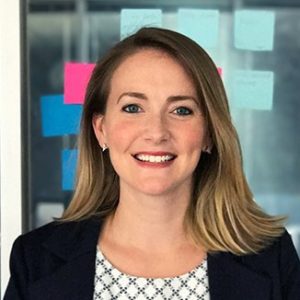 The Interview
The Interview
As most of you know, we conduct an interview for each of our TMC speakers. We do this each month in order to help you all, our awesome members, get to know the presenters and relate to them on a more personal level prior to sharing their message. In preparation for our next event, I was given the opportunity to interview Caitlin Vlastakis Smith and learn about her career.
Once we arranged a time to conduct the interview, I began creating a list of questions to ask Caitlin. On the day of our virtual meeting, I placed my laptop in front of me, grabbed a bottle of water, and had my questions ready to go. After everything was in position, I called Caitlin to begin our interview.
If you don’t mind sharing, could you tell me a little about yourself?
I went to college for art and creative writing, and even as my career has evolved to focus more on the business side of things, I still believe creativity is what drives us forward. I love creative problem solving because it’s both art and science. So, throughout my career, I just followed that same truth: chase down interesting problems, try to look at them differently and, most importantly, work with great people.
Do you have any cool hobbies that you love doing outside of work?
I like to hang out with my daughter and husband, which means going to the playground and acting like a big kid…I try to go down the slides with my daughter, even though I’m much too large. You’re never too old to play!
I also do a little bit of art on the side. I like to sketch and draw. I also like to write whenever I can. Not working within the constraints of a business problem, just drawing and writing for fun.
What led to your desire to have a career in marketing?
I never had a moment where I realized, ‘Hey! I want to be in marketing.’ I just followed what I was interested in and that has led me through various roles that are either within marketing or tangential to marketing, like technology, design and content strategy. I love figuring out what makes people tick and understanding the “why” behind their behaviors. Humans are interesting creatures, and I like studying them.
What do you enjoy most about working in this field?
I enjoy the blend of creative and analytical thinking. I enjoy not living in just one area but being a connector across different disciplines. That allows me to flex different muscles, and I really enjoy that.
In your opinion, what does it take to become a successful marketer?
Relentless curiosity. I believe the most important trait for a marketer—and any professional, really—is to remain curious and to always ask, “Why?” The answers will often take you down many different roads, and you’ll realize how much everything is interconnected. As marketing, technology, and business become tangled together even further, it’s going to be important for people within neatly categorized departments to expand beyond their siloed group and remain curious about the larger ecosystem. One of my personal favorite pieces of writing is this one, where I wrote about obsessive curiosity and uncompromising idealism.
I saw that you have been published in Advertising Age and Content Marketing Institute. Could you tell me a little about that?
For the Content Marketing Institute article, “Content Planning: How to Use UX Research to Uncover Hidden Needs,” I was writing from the perspective of a user experience strategist and seeing the really important overlaps across UX research and content marketing, and how understanding customers better can help marketers with their work.
For the piece in Advertising Age, “Four Lessons from Losing a Pitch,” it was an interesting moment for me because it required taking a risk: being vulnerable and sharing a failure. I’d recently read ‘Daring Greatly’ by Brene Brown and recalled reading about the strength and importance of being vulnerable and talking about failure openly, so we can learn from it. I had no vision of actually submitting the article to Advertising Age. I credit two awesome people, Erin Grohs and Brittany Kotary who saw the potential in the piece and submitted it. I’m very grateful to them for that, as well as to my team who submitted insights that I packaged into the article itself.
At the TMC event in April, you plan to speak about “Journey Mapping for Marketers.” What do you consider to be your favorite thing about journey mapping?
It is a way to bring people together and get them focused on solving problems for the end customer or end user. It drives really important collaboration internally and gets cross-disciplinary teams rallied around the customer to create meaningful experiences and content. Journey mapping helps us get out of our own way, get out of our own mindset and focused outward on our customers.
Do you have any specific advice for marketers who may have never created a journey map before?
You can do it! That is my only piece of advice.
Where do you see journey mapping and marketing going within the next five years?
Journey mapping within some organizations turns into, ‘Oh, look at this pretty map or this pretty artifact that we created,’ and there isn’t any action applied based on the activity of actually building the map.
So, my hope is that we continue to focus more on the insights and the actions from the journey mapping activity and focus less on just creating a really pretty artifact. Speed over perfection is important.
What is one major key takeaway that you hope the TMC audience leaves with after hearing your presentation?
The one key takeaway I hope they take home ties back to question five about becoming a successful marketer, and it’s that in order to truly understand your customers you have to be genuinely curious about who they are as humans. Journey mapping is one activity that can help you remain curious, and it’s a springboard for asking smart questions.
Caitlin is an awesome person to network with, and she has a lot of great advice and experience to share. If you’d like to reach out to her before the event, check out her website, Medium, Twitter, and LinkedIn. I can’t wait to hear her presentation and learn about journey mapping on April 25. I hope to see you all there!
This blog was written for Triangle Marketing Club.
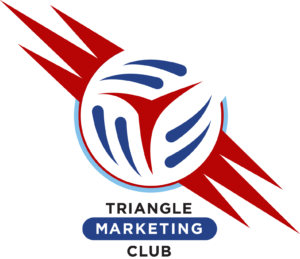
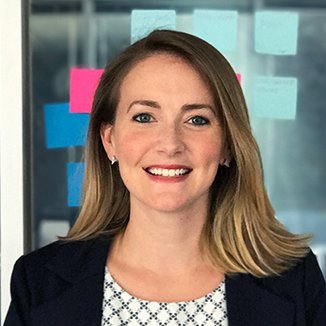
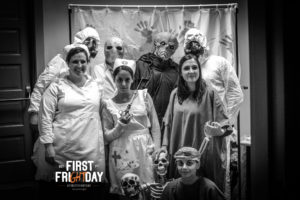
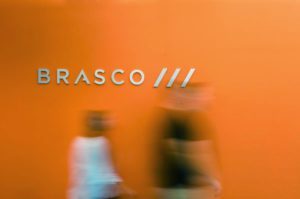 As a member of
As a member of  What services do you offer?
What services do you offer?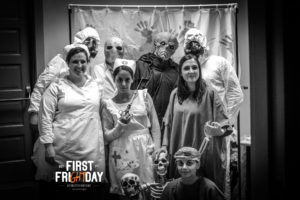 “Brasco /// began as a few friends coming together, sharing their talents, to deliver quality design and web projects. We took a boutique agency approach during the first couple of years, focused in branding, design and web development. In 2010 Brasco /// rebranded to become the agency we are today, taking a brand and marketing strategy approach, to continually lift the quality of our work. Brasco /// is now in a high growth stage, developing an all-star team of talent to deliver a fully integrated suite of marketing and advertising services. Brasco /// has grown to become one of the top agencies in the region.”
“Brasco /// began as a few friends coming together, sharing their talents, to deliver quality design and web projects. We took a boutique agency approach during the first couple of years, focused in branding, design and web development. In 2010 Brasco /// rebranded to become the agency we are today, taking a brand and marketing strategy approach, to continually lift the quality of our work. Brasco /// is now in a high growth stage, developing an all-star team of talent to deliver a fully integrated suite of marketing and advertising services. Brasco /// has grown to become one of the top agencies in the region.”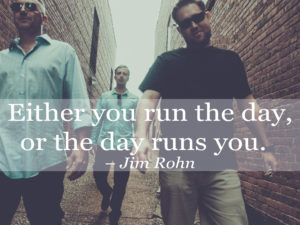 What are the overall goals for your company?
What are the overall goals for your company?
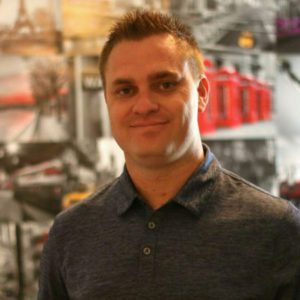
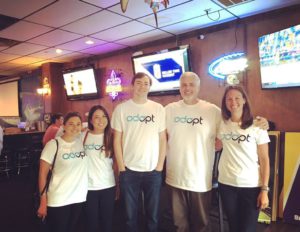
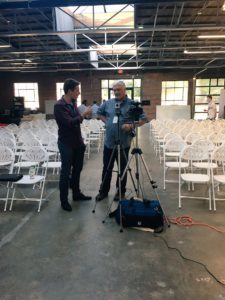 You may wonder how
You may wonder how 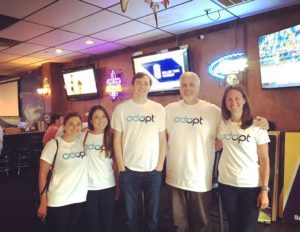
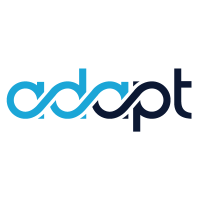
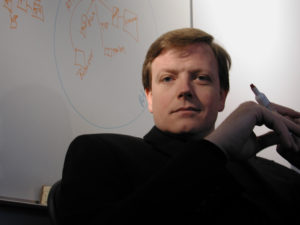
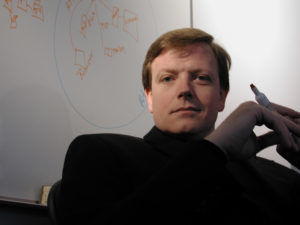 Triangle Marketing Club
Triangle Marketing Club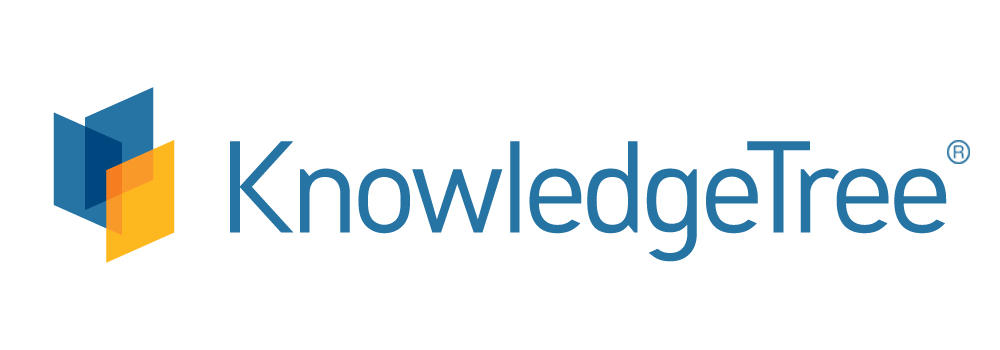
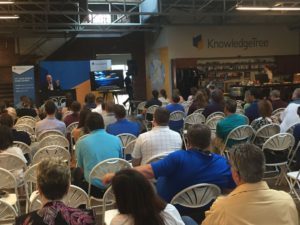 Once every month
Once every month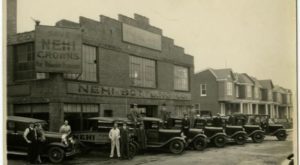 KnowledgeTree was founded as a content management solution. According to Shelley, the company identified one of their customers doing something “particularly interesting” with their solution. Meaning, they were assessing the Return on Investment, ROI, and tracking the content performance.
KnowledgeTree was founded as a content management solution. According to Shelley, the company identified one of their customers doing something “particularly interesting” with their solution. Meaning, they were assessing the Return on Investment, ROI, and tracking the content performance.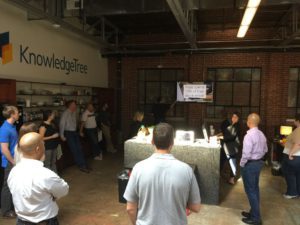 Like other companies, KnowledgeTree loves their customers. Their clients tend to have growing or large inside and field sales organizations.
Like other companies, KnowledgeTree loves their customers. Their clients tend to have growing or large inside and field sales organizations.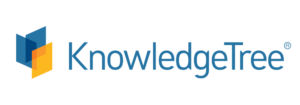
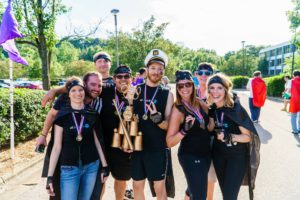
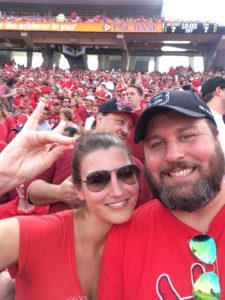 To start, she is an avid reader. If you see her waiting in a line somewhere, I can assure you that you will find her reading a new book series on her kindle. She also enjoys working out at
To start, she is an avid reader. If you see her waiting in a line somewhere, I can assure you that you will find her reading a new book series on her kindle. She also enjoys working out at 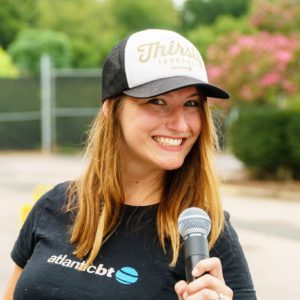 Later on, she moved to New York where she pursued her new dream in project management at a
Later on, she moved to New York where she pursued her new dream in project management at a 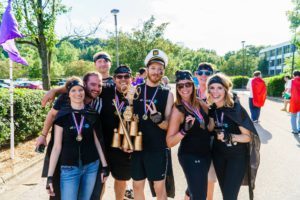 With
With 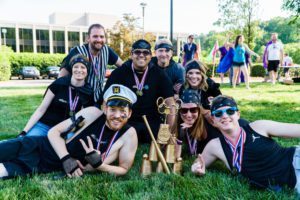
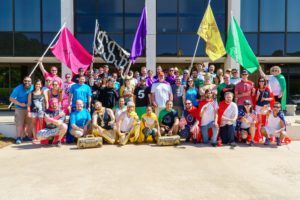 When it comes to big projects, do something special and incorporate a fun activity that the whole group would enjoy doing. Tera suggests to plan a nice dinner where everyone can relax and not have to talk about work.
When it comes to big projects, do something special and incorporate a fun activity that the whole group would enjoy doing. Tera suggests to plan a nice dinner where everyone can relax and not have to talk about work.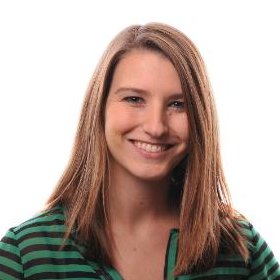

 To establish a strong brand, brands need to ask themselves, “What do we want our customers to expect from us. What’s the thing we do that makes our customers say, ‘That is so them.'” The good brands do just that. They let those questions be their compass and guide them on the right path.
To establish a strong brand, brands need to ask themselves, “What do we want our customers to expect from us. What’s the thing we do that makes our customers say, ‘That is so them.'” The good brands do just that. They let those questions be their compass and guide them on the right path.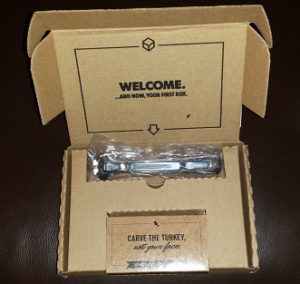 After I received some of Dean’s insight on branding, I asked, “Do you have any examples of companies that have naturally done really well at branding itself?” Outside of Disney and its extraordinary brand success, he noted that there are is definitely not a shortage of companies that have branded themselves really well.
After I received some of Dean’s insight on branding, I asked, “Do you have any examples of companies that have naturally done really well at branding itself?” Outside of Disney and its extraordinary brand success, he noted that there are is definitely not a shortage of companies that have branded themselves really well. I then asked, “When creating a logo, how do you know where to start?” Dean responded with saying he first talks to his clients to get a solid idea of how they want to appear to their potential customers. “There’s no proven method. Every creative is different,” Dean adds. This just happens to be the way he goes about designing a logo.
I then asked, “When creating a logo, how do you know where to start?” Dean responded with saying he first talks to his clients to get a solid idea of how they want to appear to their potential customers. “There’s no proven method. Every creative is different,” Dean adds. This just happens to be the way he goes about designing a logo.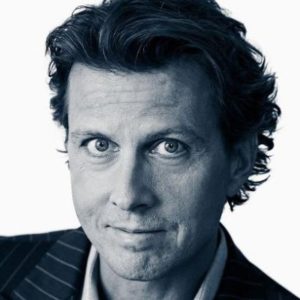
 Apart from that, what really led his desire of art and graphic design was the fact that he enjoyed the process of bringing his ideas to life. He likes to be able to take a picture of a project that he has visualized in his head, and then he brings the idea to life by creating it in a way that others can see exactly how he imagined it.
Apart from that, what really led his desire of art and graphic design was the fact that he enjoyed the process of bringing his ideas to life. He likes to be able to take a picture of a project that he has visualized in his head, and then he brings the idea to life by creating it in a way that others can see exactly how he imagined it.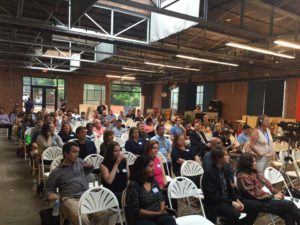 The most valuable takeaway that people will receive upon listening to
The most valuable takeaway that people will receive upon listening to 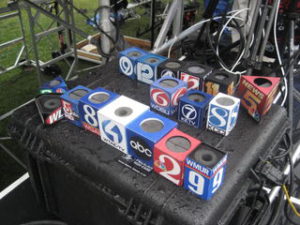
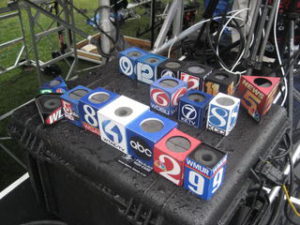 Brad grew up always wanting to be in television news. He made that dream a reality at the age of 15 when he began working behind the scenes at WAFB-TV in Baton Rouge. During college at LSU, he worked as a morning radio host and as a DJ and also worked on the assignment desk at WBRZ-TV.
Brad grew up always wanting to be in television news. He made that dream a reality at the age of 15 when he began working behind the scenes at WAFB-TV in Baton Rouge. During college at LSU, he worked as a morning radio host and as a DJ and also worked on the assignment desk at WBRZ-TV. As a public relations and media professional, Brad raises awareness for his clients on various media platforms. He said that he spends about 80% of his time with general media and PR, while the other 20% is spent dealing with crisis situations. Although he enjoys both, he believes that crisis response and management is more second nature to him. Technology is changing the face of crisis management in public relations, making successful response even more important and, at the same time, more rewarding.
As a public relations and media professional, Brad raises awareness for his clients on various media platforms. He said that he spends about 80% of his time with general media and PR, while the other 20% is spent dealing with crisis situations. Although he enjoys both, he believes that crisis response and management is more second nature to him. Technology is changing the face of crisis management in public relations, making successful response even more important and, at the same time, more rewarding.